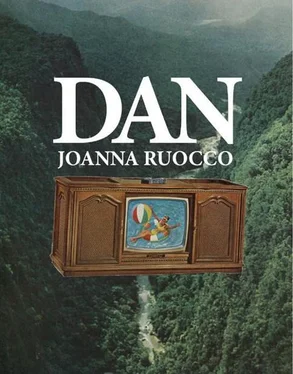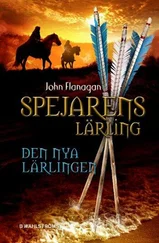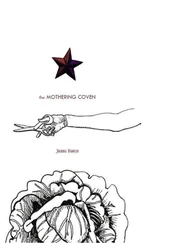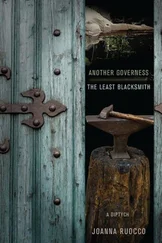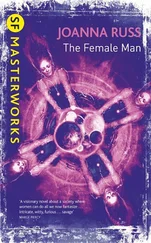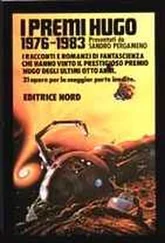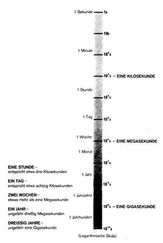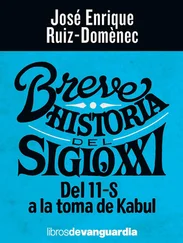Melba’s mother had once offered Melba an explanation.
“That Ann Dump!” Melba’s mother had cried. Ann Dump was the town clerk, and not a good one. Under Ann Dump’s clerkship, many vital records in the town hall vault had been consumed by snails.
“That Ann Dump!” said Melba’s mother. “She encourages snails. Have you ever noticed the cucumber slices in the town hall? Every surface is covered with cucumber slices! That Ann Dump is feeding the snails! She’s lured every snail for miles around into the town hall with her cucumber slices.”
Melba had looked around her mother’s kitchen. For years, snails had been wearing runnels in the floorboards, and in these runnels, Melba could see several dozen snails in transit. She identified at least three varieties of snail, including the Eastern Melampus, the snail for whom her younger sister, Melampus, had been named. Melba felt the urge to pick a snail from the wall. Surely, with one of these evidentiary beings in her hands, Melba could at last contradict her mother. How could Gigi Zuzzo claim that Ann Dump’s cucumber slices attracted every snail for miles around when the Zuzzo household was filled with snails, every day more snails than the day before? The town hall was very close to the Zuzzo’s, just across the gully, on Flop Street. Even for snails, the trip couldn’t take long. But maybe it hadn’t occurred to them yet? Gigi Zuzzo was a forward thinker. Her ideas were certainly more advanced than the ideas of snails. The pace of a snail exodus was bound to be slow, so slow that the signs could very easily be missed.
Melba had hesitated, fingers hovering above the snail on the wall. What if she failed to contradict her mother, and instead only managed to provoke her? Gigi Zuzzo often said that Melba was a provoking daughter, quarrelsome, with habits befitting an earlier kind of person, a person from pre-history. In pointing out her mother’s incorrect assessment of Ann Dump’s cucumbers, Melba did not want to prove her mother correct in her assessment of Melba. Melba jerked her fingers away from the snail, but all at once the extensor muscles in her arm contracted. Her arm straightened and she slammed her palm against the wall. The wet pop made Melba grimace.
Why couldn’t Melba master fine motor skills? Maybe she was like a pre-historical person. Melba imagined a pre-historical person. The pre-historical person was squatting in carnivorous ferns, using a rock to smash a mosquito against her own face. A modern person would deal with the mosquito differently. A modern person would react with dexterity and cunning, fabricating a short switch from the carnivorous ferns and flicking it against her face, concussing the mosquito while leaving the bridge of her nose and the facial skin intact. How had the pre-historical person developed into a modern person, a person with this capacity for mental sequencing and gestural precision? Through what course of study?
In high school, Melba had taken both history and phrenology, but neither class had included a unit on pre-historical people. Mr. Sack, the history and phrenology teacher, did not believe in textbooks. Instead, he distributed modeling clay, which the students used to shape the noses of 19th century naval heroes. Melba enjoyed shaping noses, but she hoped for exposure to something more. She grew listless, each nose she produced more snoutish than one before, until finally she decided to visit Mr. Sack in his office after school.
“Knock, knock,” said Melba, and the door swung open. For a moment, it looked and sounded to Melba like something large had just bounded behind Mr. Sack’s ficus tree, and Melba couldn’t help but conclude that Mr. Sack was secretly blind and keeping a guide animal hidden in his office. She began to back away from the door, but suddenly Mr. Sack was at her side, ushering her roughly to a low footstool.
“Welcome to my solitary idyll, Melba Zuzzo,” said Mr. Sack with a broad smile. Melba looked away shyly, pretending to inspect his tall bookshelf. On every shelf, blocks of modeling clay had been carefully grouped according to color, whites with the whites, grays with the gray, taupes with the taupe.
“If you’d like to borrow a block, I have a sign-out sheet,” said Mr. Sack, still smiling. His thighs were close to Melba, and from her seat on the footstool, she could inspect them at eye-level. The wales on his corduroy trousers had been worn down, exposing the thin, sheer fabric beneath, the greasy silver color of a well-thumbed spoon. Mr. Sack selected a taupe block from the shelf, but Melba declined the proffered block and clipboard with a shake of her head.
“Oh, no thank you,” said Melba. She gazed about wonderingly. She had missed school offices, with their lovely potted trees and heavy, dented furniture and wall-calendars and clocks! Since Principal Benjamin had disappeared, she had never imagined she’d enter one ever again, but there she was, in an office in the late afternoon, when the other young people were mingling with each other in the muddy clear-cut beneath the funicular device. Melba was never the type to mingle with young people, and though she wasn’t yet exactly mingling with Mr. Sack, she began to enjoy his proximity. Mr. Sack’s office had a sour and talcy odor, which increased her enjoyment. The odor reminded Melba of the family bathroom after one of her father’s diluvial showers, the white puddles he left after he’d rinsed his hair with vinegar and patted his body dry with an assortment of unperfumed powders. Melba sighed as Mr. Sack settled himself in his chair and looked down at her, legs crossed. After a moment, he spoke.
“You may rest your head on my knee,” he said, and Melba started.
“Oh, that’s very kind,” she said, and then, realizing that her attempt at polite refusal had surrendered at polite, she remained perfectly still as Mr. Sack took a small velvet pillow from his desk drawer and positioned it on his lap.
“I so often rest my head on things, though,” said Melba. “Warm, unfrosted cakes. Freshly piled laundry. I’d better not.” She giggled nervously but Mr. Sack only shrugged.
“The vertical carriage of the human head is marvelous,” he said, “as are the orthognathic jaws and mobile tongue, but it often results in hypertonicity of the neck muscles.”
“Why don’t we ever talk about the neck muscles?” asked Melba. “Or about the tongue? There’s so much I want to know.”
Mr. Sack took a nose from the desk drawer and regarded it sadly, his index fingers thrust deep in the snoutish nostrils.
“Melba,” said Mr. Sack, finally. “You’ve grown tired of noses. Hush! Don’t argue! I’m a teacher and I understand things. You think I should widen the scope of my classes. Well, you’re wrong, Melba. Dangerously wrong. The students in this school have excitable passions. Sometimes they kiss each other feverishly in the halls, or stand up in class, screaming, ‘I am thy vessel! Fill me, dark prince, with the power of evil!’ Certainly, you’ve noticed.”
Mr. Sack shook his index fingers so that the nose dropped to his desk with a dull clunk.
“The students in this school can’t handle the stimulus of absolute knowledge. They need routine and fentanyl lozenges.”
Melba felt a deep thrill at this unexpected confidence and she leaned forward eagerly.
“I’m not like the other students, Mr. Sack,” said Melba. “My airflow is too restricted for kissing and I hate to make a scene.” She lowered her voice. “Mr. Sack,” she confessed, “Principal Benjamin told me about epochs. He said I would learn about them someday. I thought he meant in high school, but maybe he meant at some other point in life, when I’m in the workforce, or taking a course at a retirement community. Mr. Sack, I have a problem,” whispered Melba, almost breathless, “I just can’t figure out what time is made of.” Mr. Sack worked a mauve lollipop out of his pants pocket and he offered it to Melba without speaking. She ignored it.
Читать дальше
